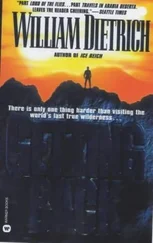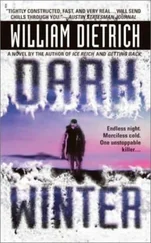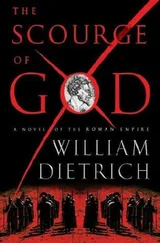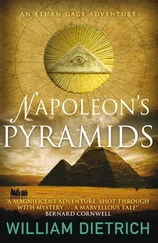William Dietrich - Blood of the Reich
Здесь есть возможность читать онлайн «William Dietrich - Blood of the Reich» весь текст электронной книги совершенно бесплатно (целиком полную версию без сокращений). В некоторых случаях можно слушать аудио, скачать через торрент в формате fb2 и присутствует краткое содержание. Жанр: Триллер, на английском языке. Описание произведения, (предисловие) а так же отзывы посетителей доступны на портале библиотеки ЛибКат.
- Название:Blood of the Reich
- Автор:
- Жанр:
- Год:неизвестен
- ISBN:нет данных
- Рейтинг книги:5 / 5. Голосов: 1
-
Избранное:Добавить в избранное
- Отзывы:
-
Ваша оценка:
- 100
- 1
- 2
- 3
- 4
- 5
Blood of the Reich: краткое содержание, описание и аннотация
Предлагаем к чтению аннотацию, описание, краткое содержание или предисловие (зависит от того, что написал сам автор книги «Blood of the Reich»). Если вы не нашли необходимую информацию о книге — напишите в комментариях, мы постараемся отыскать её.
Blood of the Reich — читать онлайн бесплатно полную книгу (весь текст) целиком
Ниже представлен текст книги, разбитый по страницам. Система сохранения места последней прочитанной страницы, позволяет с удобством читать онлайн бесплатно книгу «Blood of the Reich», без необходимости каждый раз заново искать на чём Вы остановились. Поставьте закладку, и сможете в любой момент перейти на страницу, на которой закончили чтение.
Интервал:
Закладка:
Shambhala looked very strange.
If only Roy Chapman Andrews and Agent Duncan Hale could see this.
The road led to a tunnel sloping down into the earth. It was from there that the humming emanated. There was a faint, sickly luminescence that seemed to emerge from the walls of the tunnel itself, as if the rock were alive with energy. How this could be, Hood had no idea. Then, a hundred yards in, a circular entrance with a narrow pocket to either side into which some kind of aperture door had slid. Beyond was darkness. Except not complete darkness, because far, far below a yellow light glimmered, like a candle at the end of the tunnel. In that direction, too, was the source of the noise, a whir like a turbine.
The ruin looked centuries or millennia old yet trembled like a powerhouse.
Hood took out his pistol, wary.
Then there was a new rumble. The tips of the door’s black petals began closing like an insect maw.
For just a moment he considered bolting. But then whatever he’d come for would be forever beyond his grasp, wouldn’t it? He’d be haunted by incompletion, like last time. He stepped through and watched, die cast, as the door slammed shut.
He was in Shambhala.
It was dark, except for that distant light.
He carefully began to walk downhill.
As Hood descended he occasionally felt currents of air from what he assumed were openings on both sides of the central tunnel, and felt like he was being watched by the spirits of what had once been here. No one challenged him, however. There was only the murmur of spoken German ahead.
The humming grew louder and he saw light slanting out from a hangar-sized opening. It spilled into a cavernous lobby, a great stone atrium with carved pillars branching across a rock ceiling. Various doors opened to all sides. Now he heard excited voices to the right. He trotted lightly to where a massive iron or steel door had been wrenched askew. Shielding his own body from view, he peered inside the next room.
And there was Raeder and his party! It was startling to see his quarry after four years, standing in a ballroom-sized stone chamber barren of all furniture or decoration. He was as Hood remembered him, tall, handsome, and carrying himself with that peculiar Teutonic poise. Raeder and three other men he assumed to be Nazis were dressed in mountain boots and heavy jackets, their packs on the floor. A smaller, slighter figure was Keyuri; when she moved his recognition was instant. Her slim grace was like a fingerprint. Each of the five people held a long staff, he saw. From the tips a light shone, like a gas wick. And beyond was some kind of vast machine, high as a cliff, glittery from metal and somber with black pipes and boilers. This contraption glowed and emitted a low whine. Pipes from the machine led into low tunnels at each end of the room. At the center of this behemoth was a cavity. In this cavity was a rack, and on that rack rested another staff, but this one translucent, like a piece of agate. It was not shining like a lantern but instead pulsed with a golden glow, like a beating heart. Beyond was a pit that appeared to descend into the earth, its mouth reflecting red.
What ancient civilization had built this thing?
“I think the machine is energizing the staff with a power we’ve no knowledge of, the power of Vril,” Raeder was saying to the others. “Something comes through those pipes in the long tunnel.”
“What’s the staff for?” one of the Germans asked.
“Think of legends and fairy stories. Remember the magic wand or wizard’s staff? What if they were true? I think our forebears wielded these rods of power.”
“It’s dangerous,” Keyuri warned.
“And hard to control,” said a German who seemed unhappier than the others. “Why are all those bones there, Kurt? Where are all the inhabitants?”
“We’ve discovered exactly what the Reichsfuhrer sent us here for,” Raeder said, ignoring his question. “What matters is Germany.”
Hood looked to the shadows beyond the twisted door. There was a great, ghastly pile of human bones, the dead of this civilization in a macabre tableau. What the devil had gone on here? Why was this place so secret, so remote, so buried?
“Touching the staff may be like touching a hot wire,” another of the Germans cautioned.
“Or like holding the butt of a gun,” said Raeder. “Most savages would be afraid to pick up a firearm. But not all.” He hesitated just a moment, looking at the others. Then he strode decisively under the brow of the machine, stooped, and reached for the cradled staff.
“Kurt, no!”
“Stop sounding like an old woman, Julius.”
Yet as he reached, the humming died with a sigh, and all the lights from the staffs they held dimmed. He paused.
“Somehow you’ve turned it off,” one of the Germans called. “Like blowing a fuse.”
“Or cooling a candle so you can touch it. This wand wants to be held.” So Raeder hesitated just a moment more and then seized the staff and lifted it clear. It shone like amber, a beautiful six-foot-long staff of honeyed crystal, pulsing like life itself.
Unlike the other staffs, this new one didn’t cast light but instead purred with it, honey and amber flowing up and down its length. “I can feel its energy,” Raeder reported. “From my hands to my toes.”
“Energy for what?” one of the Germans asked.
“It’s an elixir.” Tentatively, Raeder moved the staff through the air. It gave a hum. When he swept it in an arc it hummed louder, an odd chord that echoed in the vast room. “It makes music!” He laughed.
“Unearthly music,” one said.
“The music of the spheres, perhaps,” Raeder told them. “The music of the cosmos. It isn’t wicked. It’s beautiful!”
“We’ve come ten thousand miles to a hole in hell for a toy?” the grumpiest German said. “This is what Franz died for, Kurt? This is what you blew up our only route of retreat for? A music stick? We’re going to starve in this cellar while you wave your baton around?”
Raeder looked annoyed. “We make a greater discovery than King Tut and you call it a toy. A machine bigger than a battleship and you think we’ve come for nothing. You’re a coward, Julius.”
The German flushed. “But what does it do, Kurt?” The man named Julius pointed toward the bones and Hood shrank into the shadows. “Why is Shambhala a catacomb?”
“Every city has bones. Look at Rome.”
“Why is no one left to attend the machine?”
“We’re attending it. Maybe the builders got what they wanted-Vril-and left, locking it for the return of the descendants of Barbarossa. Preserving it for us.”
“You’re risking our lives without careful consideration. Let’s be cautious here. Experiment. Test. Use the scientific method.”
“I’m seizing what I need because the Buddhist bitch here fetched her American boyfriend. This is not an archaeological dig, it’s a treasure hunt, and we may be in a race with the Americans. And I’m tired of your criticism, Muller.” He pointed the staff at his companion.
“I’m tired of your reckless leadership.”
And then there was a flash, bright as lightning, a terrifying crack, and with a cry the complaining German went flying across the machine room and crashed into the far wall, sliding down.
He was grotesquely burnt, clothes smoking.
Everyone froze in shock. The man named Julius had been killed. His flesh had blackened and peeled. The corpse sat on the floor, mouth frozen in a gasp of pain, and then huge parts of him sloughed off bone. He’d not just been blasted, he’d half disintegrated.
“Great God!” one of the other Germans cried. “You murdered Muller!”
Raeder was white with shock. “I did nothing…” His protest hung in the air.
Читать дальшеИнтервал:
Закладка:
Похожие книги на «Blood of the Reich»
Представляем Вашему вниманию похожие книги на «Blood of the Reich» списком для выбора. Мы отобрали схожую по названию и смыслу литературу в надежде предоставить читателям больше вариантов отыскать новые, интересные, ещё непрочитанные произведения.
Обсуждение, отзывы о книге «Blood of the Reich» и просто собственные мнения читателей. Оставьте ваши комментарии, напишите, что Вы думаете о произведении, его смысле или главных героях. Укажите что конкретно понравилось, а что нет, и почему Вы так считаете.












